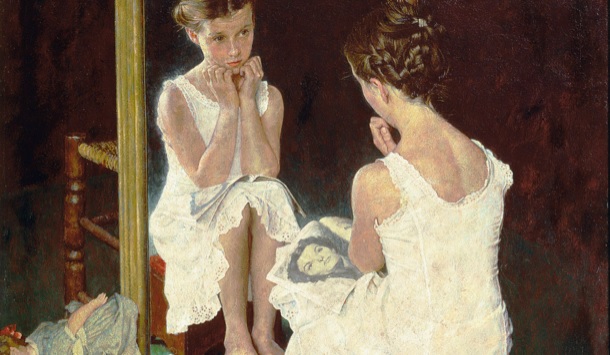Nobody purposely causes themselves pain.
This is the first thing we need to acknowledge if we want to start on a journey of taking responsibility for our own suffering.
We aren’t f*ck-ups, screw-ups, or stupid morons in any way.
And that means at times, we can be confused, lonely, brokenhearted, and also trying our best to improve our own journeys and the journeys of others while struggling to see through the fog of our existence.
This is a beautiful thing.
It’s not something easy, but it is something to definitely be grateful for.
We have also all made “mistakes” in our lives—and by “mistakes,” I mean we have all had experiences that are simply teaching us and helping us grow, but feel like “mistakes.” And, we are (mostly) all extremely hard on ourselves about these things we perceive we are doing wrong in our lives.
And this is what we must forgive ourselves for—the perception that we are not doing a good enough job being human.
I am extremely hard on myself. My mind never stops evaluating each moment—specifically, how I could have done it differently, been better, reacted more beneficially to myself—or, more often, been more beneficial to other people.
This is what I am ready to forgive.
I am not looking to forgive my actual actions or the actions of others, but instead, I am ready to forgive myself for all the times I have been mean to myself with negative and even cruel self-talk.
Self-forgiveness is a process though—this, I know.
We won’t do it in one session of saying sorry to our own being.
We do it in all of the small moments when we see our own pain, and we forgive ourselves for being feeling humans who not only love and rejoice, but also hate and feel jealousy and resentment.
We forgive ourselves for being ill, for being confused, and for being mean to others—and also to ourselves. And we forgive ourselves for the pain of knowing that self-forgiveness is also not the total answer to our suffering.
Forgiveness won’t be the end of our suffering, because we are human, and what we call pain or mistakes will always continue. But, what forgiveness will bring us is an increased confidence that we can handle whatever comes our way, because even if it doesn’t go well, we will be able to forgive.
When we know that we can forgive, we develop an inner strength of believing we can tackle any challenge. Because even if we stumble and fall flat on our faces, we won’t have to suffer forever from that one fall, because we will be able to forgive our own foibles and carry on.
All the pain that occurred in the past can be over—but only if we choose for it to be. When we carry all of our pain in our hearts—all the time—and attack ourselves with this old pain each and every day, we have to live with this trauma and suffering.
The moment the pain actually occurred is over, but still we hurt ourselves with the memory. This is something to be forgiven—the carrying of all the pain from the past which causes us to miss the joy in the moment.
We all do this—it is normal. But still, it can be forgiven.
When we understand we can forgive, we become more open to the pain of others. It means people can lash out at us, share their suffering, tell us all what is wrong and painful—and even if it hurts us to hear it, we know we will be able to forgive the hurt.
I don’t know what the process of forgiveness looks like for you (I barely know what it looks like for me), but I know what it feels like when I touch forgiveness. It feels like humility. It feels like all my sharp edges are melting around me, and I sink into a gentle acceptance of being a flawed human with a big heart, trying my best each and every day.
My vision is different when my intention is forgiveness. I see through a gentler lens. I see that everyone is waking up each and every morning and trying again, even if it is hard—and even if the delusion of self-protection is controlling their reactions.
From the intention of self-forgiveness, I feel the immensity of the total journey of space and time I’ve been existing in.
I see that bad things have happened to my soul in this life—and previous lives—and that bad things happening are not a reflection of my karma. Bad things happening doesn’t mean I’m being punished for past mistakes. Self-forgiveness allows me to see that I am not causing my own suffering—but I might be wallowing in it.
I did hurt myself when I blamed myself for the pain.
I did hurt myself internally when I gave up on myself—when I felt like I was a failure and that my life was pointless.
These inner thoughts and mean reactions from myself toward myself have hurt me in the past, and they also hurt me in the present when I continue with mean, demanding behavior toward myself.
For this, I am sorry.
For this, I will tell myself that I am sorry, and I will do better each and every day.
We can’t control the actions of other people. There is evil in the world, and there are people who want to hurt other people. This is a true fact we can’t ignore. And when the hurt happens, we need to remember that we did not bring this pain upon ourselves with our own karma. But also, if we take the pain inflicted upon us and internalize it into a lack of self-worth and self-confidence, we will have to live with that negativity, and that will be a hurt we are inflicting on ourselves.
This is a nuanced distinction, but when it is understood, it is incredibly empowering.
Our relationship with our self is crucial. And when we know that we can forgive ourselves, no matter what events occur on this human journey, then we will develop a strength no one can ever take away from us.
Self-forgiveness takes courage. It takes intention and not believing the self-critical thoughts that play in our minds each and every day.
Self-forgiveness means going against the powerful current of wanting to blame others for your pain.
These are real challenges, and the way to break through the dark clouds of resisting self-forgiveness is just to do it.
Just forgive.
Say to yourself, “I am forgiving,” and then lie quiet and listen.
Maybe feel your heart center, maybe put on some soothing music, maybe go out for a hard run, and stomp forgiveness into every pound of your foot against the ground. I don’t know which way is best for you. You just have to figure it out, because it is good for you!
There is no right way to forgive, but there are many ways to avoid forgiving—and the more we avoid something, the harder it is to start.
If you want love to be the guide between your mind and your own heart, then they need to trust each other. They need to know that they will treat each other well. Forgive yourself for every time your heart has hurt your mind, and every time your mind has hurt your heart, and every time your choices have hurt your own body.
Say “sorry” loudly in a clear and confident voice to your whole being, and watch your human journey open up in ways you never expected.
Why we are here as humans is a big, fat mystery—but if we take the time to forgive ourselves for all the pain we have caused our own souls, then we know we are making good use of this human journey we will never fully understand.
~
Relephant:
What I’ve Learned from Being a Consciously Messy Human.
3 Deliberate Steps to Self-Forgiveness.
Today, I Forgive Myself.
~
Author: Ruth Lera
Image: elephant archives
Editor: Yoli Ramazzina
Copy Editor: Travis May
Social Editor: Waylon Lewis


 Share on bsky
Share on bsky





Read 7 comments and reply